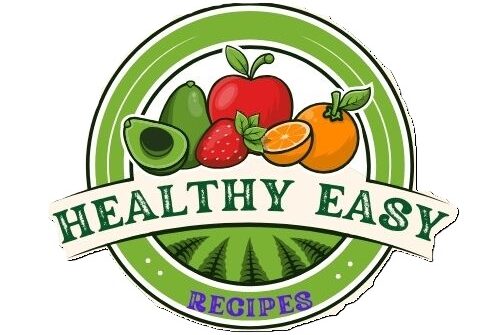The Ultimate Guide to a Plant-Based Diet: Benefits, Foods, and Tips
A plant-based diet is gaining popularity for its numerous health benefits and positive environmental impact. Whether you’re considering transitioning to a plant-based lifestyle or just looking to incorporate more plant-based meals into your diet, this guide to a Plant-Based Diet will provide you with essential information, including benefits, recommended foods, and practical tips.
Guide To A Plant-Based Diet
Read More: Don’t Get Confused! The Truth About Plant-Based vs. Vegetarian Diets
A plant-based diet focuses primarily on whole, minimally processed plant foods, including fruits, vegetables, legumes, nuts, seeds, and whole grains. Unlike a strict vegan diet, which eliminates all animal products, some individuals on a plant-based diet may still include small amounts of animal-derived foods, such as dairy or honey.
Health Benefits of a Plant-Based Diet
Read More: 10 Science-Backed Benefits of a Plant-Based Diet
Switching to a plant-based diet offers numerous health advantages, including:
- Improved Heart Health: Reduces cholesterol levels and lowers the risk of heart disease.
- Weight Management: Helps in maintaining a healthy weight due to lower calorie density and higher fiber intake.
- Reduced Risk of Chronic Diseases: Lowers the risk of type 2 diabetes, hypertension, and certain cancers.
- Better Digestive Health: Rich in fiber, which promotes gut health and regular digestion.
- Enhanced Longevity: Studies suggest that plant-based diets contribute to a longer lifespan.
Essential Foods to Include
Read More: Plant-Based Diet Made Easy: What to Eat & 7-Day Meal Plan
To ensure a balanced and nutritious plant-based diet, incorporate the following food groups:
Fruits and Vegetables
- Leafy greens (spinach, kale, Swiss chard)
- Cruciferous vegetables (broccoli, cauliflower, Brussels sprouts)
- Berries, citrus fruits, apples, bananas, and mangoes
Whole Grains
- Quinoa, brown rice, whole wheat, oats, barley
- Whole grain pasta and bread
Legumes and Beans
- Lentils, chickpeas, black beans, kidney beans
- Peas, edamame, and soy products (tofu, tempeh)
Nuts and Seeds
- Almonds, walnuts, cashews, and pistachios
- Chia seeds, flaxseeds, sunflower seeds, and hemp seeds
Plant-Based Protein Sources
- Beans, lentils, tofu, tempeh, seitan
- Plant-based protein powders (pea protein, hemp protein)
Healthy Fats
Read More: Can You Eat Eggs on a Plant-Based Diet? Here’s How to Make It Work!
Tips for Transitioning to a Plant-Based Diet
If you’re new to plant-based eating, follow these tips for a smooth transition:
- Start Gradually: Begin by adding more plant-based meals to your weekly routine.
- Experiment with New Foods: Try different plant-based protein sources and whole grains.
- Plan Your Meals: Meal prepping can help you stick to your dietary goals.
- Read Food Labels: Avoid highly processed plant-based foods with added sugars and preservatives.
- Ensure Nutritional Balance: Pay attention to key nutrients like vitamin B12, iron, omega-3s, and protein.
- Find Plant-Based Alternatives: Replace dairy with almond or oat milk, and swap meat for plant-based proteins.
- Stay Hydrated: Drinking plenty of water aids digestion and overall health.
Common Myths About a Plant-Based Diet
Read More: 4 Mistakes Plant-Based Eaters Make and How to Fix Them
Myth 1: It’s Difficult to Get Enough Protein
Reality: Plant-based diets provide ample protein through legumes, nuts, seeds, and soy products.
Myth 2: It’s Expensive
Reality: Whole plant foods like beans, rice, and vegetables are often more affordable than animal-based products.
Myth 3: It Lacks Essential Nutrients
Reality: A well-planned plant-based diet can meet all nutritional needs with the right variety of foods.
Sample Meal Plan for a Day
Access The : 7-Day Plant-Based Diet Plan – Easy Meals for a Healthy Start
Breakfast
Read More: 10 Easy & Fantastic Plant-Based Breakfast Ideas To Fuel You Up
Blackberry Chia Pudding: Creamy, Healthy & So Easy to Make
Lunch
The Ultimate Rainbow Quinoa Salad – A Colorful, Nutrient-Packed Delight
Snack
Hummus with Veggies – Step-by-Step Guide
Dinner
Chickpea and Vegetable Stir-Fry
Plant-Based Cooking Basics
- Brown Rice
- Lentils
- Roasted Chickpeas
- Farro
- Tofu
- Tempeh
- Quinoa
- Zucchini Noodles
A plant-based diet offers numerous health and environmental benefits while providing delicious and diverse food options. You can enjoy a sustainable and rewarding plant-based lifestyle by gradually making changes, ensuring balanced nutrition, and experimenting with different plant-based meals. Start today and experience the positive changes it can bring to your health and well-being!
Your Plant-Based Questions, Answered:
- What is a whole-food, plant-based diet? A whole-food, plant-based (WFPB) diet focuses on eating minimally processed plant foods such as fruits, vegetables, whole grains, legumes, nuts, and seeds while avoiding animal products, refined foods, and artificial ingredients.
- How is a plant-based diet different from a vegan diet? A plant-based diet prioritizes whole, minimally processed plant foods but may occasionally include small amounts of animal products. A vegan diet eliminates all animal-derived foods (including dairy, eggs, and honey), often for ethical or environmental reasons.
- Can I get enough protein on a plant-based diet? Absolutely! Legumes (beans, lentils, chickpeas), tofu, tempeh, quinoa, nuts, and seeds are all excellent sources of protein. Even vegetables contain protein in small amounts.
- Will I get enough calcium without dairy? Yes! Many plant foods are rich in calcium, including leafy greens (kale, bok choy), almonds, tahini, tofu, fortified plant milk, and sesame seeds.
- Do I need to take supplements on a plant-based diet? The most important supplement to consider is vitamin B12, which is not found in plant foods. Some people also choose to supplement vitamin D, omega-3s (from algae oil), and iron if needed.
- Will a plant-based diet help with weight loss? Many people lose weight on a plant-based diet because it is naturally high in fiber and low in calorie-dense processed foods. It also helps regulate appetite and improves metabolism.
- Can athletes thrive on a plant-based diet? Yes! Many elite athletes follow plant-based diets for better recovery, endurance, and reduced inflammation. Foods like quinoa, lentils, peanut butter, and smoothies with plant-based protein are great choices.
- Is it expensive to eat plant-based? Not at all! Beans, rice, lentils, potatoes, oats, and seasonal produce are among the most affordable foods. Buying in bulk and cooking at home makes it even more budget-friendly.
- How do I deal with social situations or eating out? Most restaurants offer plant-based options, and you can always check the menu in advance, ask for modifications, or bring your own dish to gatherings.
- How do I start transitioning to a plant-based diet? Start by adding more plant foods to your meals, replacing meat with beans or tofu, and gradually reducing processed and animal-based foods. Focus on progress, not perfection!
Read more : Is White Bread Vegan? What You Need To Know, Yogurt on a Plant-Based Diet? Here’s What You Need to Know











